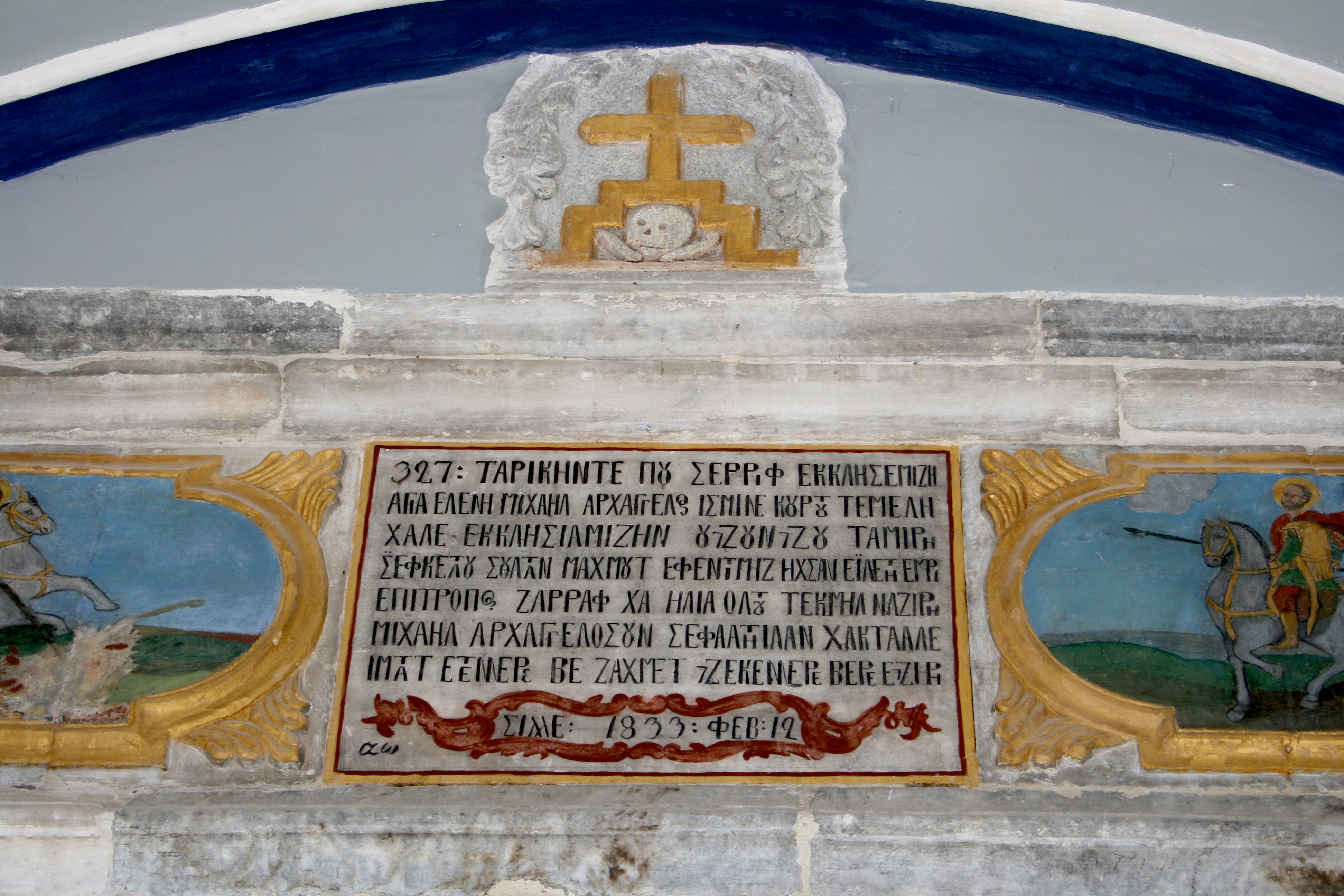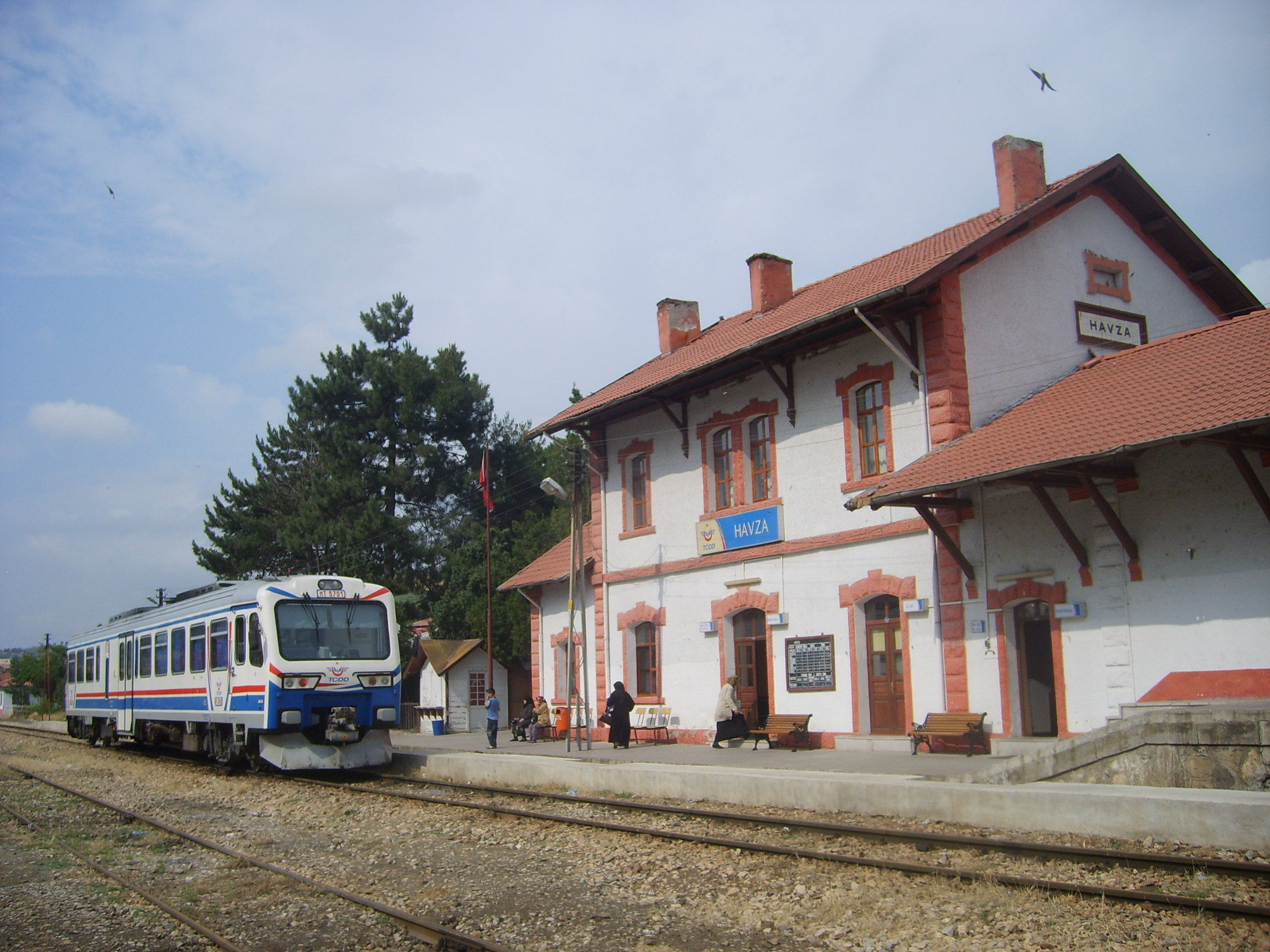|
General Congregation Of The Anatolian Turkish Orthodox
The General Congregation of the Anatolian Turkish Orthodox (in Turkish ''Umum Anadolu Türk Ortodoksları Cemaatleri'') was a pro- Turkish nationalist Orthodox Christian group set up in 1922 and mainly active in the Turkish-speaking, Orthodox Christian Karamanlides population of central Anatolia. Unlike most Greek Orthodox Christians, they identified themselves as Turkish rather than Greek and supported Kemal Atatürk. At the time, it had support from the Orthodox Bishop of Havza, as well as numerous other congregations. The last dragoman: the Swedish orientalist Johannes Kolmodin as scholar, Elisabeth Özdalga There were calls to establish a new Patriarchate for Turkish-speaking Christians with |
Turkish Nationalist
Turkish nationalism ( tr, Türk milliyetçiliği) is a political ideology that promotes and glorifies the Turkish people, as either a national, ethnic, or linguistic group. The term "ultranationalism" is often used to describe Turkish nationalism. History After the fall of the Ottoman Empire, Mustafa Kemal Atatürk came to power. He introduced a language reform with the aim to "cleanse" the Turkish language of foreign influence. He also promoted the Sun Language Theory in Turkish political and educational circles from 1935. Turkish researchers at the time like Hüseyin Cahit Yalçın and Rıfat Osman Bey also came up with the idea that Early Sumerians were proto-Turks. Variants Ideologies associated with Turkish nationalism include Pan-Turkism or Turanism (a form of ethnic or racial essentialism or national mysticism), Turkish-Islamic synthesis (which combines Turkish nationalism with Islamic identity), Anatolianism (which considers the Turkish nation as a separate enti ... [...More Info...] [...Related Items...] OR: [Wikipedia] [Google] [Baidu] |
Karamanlides
The Karamanlides ( el, Καραμανλήδες; tr, Karamanlılar), also known as Karamanli Greeks or simply Karamanlis, are a traditionally Turkish-speaking Greek Orthodox people native to the Karaman and Cappadocia regions of Anatolia. The origins of the Karamanlides have long been disputed; there are two basic theories on the subject. According to one, they are the remnants of the Byzantine Greek population, which though it remained Orthodox, was linguistically Turkified. The second theory holds that they were originally Turkic soldiers which the Byzantine emperors had settled in Anatolia, and who retained their language and Christian religion after the Turkic conquests. The Karamanlides were forced to leave Anatolia during the 1923 population exchange between Greece and Turkey. Today, a majority of the population live in Greece and have been well integrated into Greek society. Etymology The term is geographical, derived from the 13th century Kingdom of Karaman. Origi ... [...More Info...] [...Related Items...] OR: [Wikipedia] [Google] [Baidu] |
Kemal Atatürk and Nikos Gatsos
{{disambiguation ...
Kemal may refer to: ;People * Mustafa Kemal Atatürk, a Turkish politician and the first president of Turkey * Kemal (name), a common Turkish name ;Places * Kemalpaşa, İzmir Province, Turkey * Mustafakemalpaşa, Bursa Province, Turkey ;See also *"Kemal", a Greek song by Manos Hatzidakis Manos Hatzidakis (also spelled Hadjidakis; el, Μάνος Χατζιδάκις; 23 October 1925 – 15 June 1994) was a Greek composer and theorist of Greek music, widely considered to be one of the greatest Greek composers and one of the most ... [...More Info...] [...Related Items...] OR: [Wikipedia] [Google] [Baidu] |
Havza
Havza is a district of Samsun Province of Turkey Turkey ( tr, Türkiye ), officially the Republic of Türkiye ( tr, Türkiye Cumhuriyeti, links=no ), is a list of transcontinental countries, transcontinental country located mainly on the Anatolia, Anatolian Peninsula in Western Asia, with .... The mayor is Sebahattin Özdemir ( AKP). References Populated places in Samsun Province Districts of Samsun Province {{Samsun-geo-stub ... [...More Info...] [...Related Items...] OR: [Wikipedia] [Google] [Baidu] |
Turkish Language
Turkish ( , ), also referred to as Turkish of Turkey (''Türkiye Türkçesi''), is the most widely spoken of the Turkic languages, with around 80 to 90 million speakers. It is the national language of Turkey and Northern Cyprus. Significant smaller groups of Turkish speakers also exist in Iraq, Syria, Germany, Austria, Bulgaria, North Macedonia, Greece, the Caucasus, and other parts of Europe and Central Asia. Cyprus has requested the European Union to add Turkish as an official language, even though Turkey is not a member state. Turkish is the 13th most spoken language in the world. To the west, the influence of Ottoman Turkish—the variety of the Turkish language that was used as the administrative and literary language of the Ottoman Empire—spread as the Ottoman Empire expanded. In 1928, as one of Atatürk's Reforms in the early years of the Republic of Turkey, the Ottoman Turkish alphabet was replaced with a Latin alphabet. The distinctive characteristics of the Turk ... [...More Info...] [...Related Items...] OR: [Wikipedia] [Google] [Baidu] |
Autocephalous Orthodox Patriarchate Of Anatolia
The Autocephalous Turkish Orthodox Patriarchate ( tr, ), also referred to as the Turkish Orthodox Church ( tr, ), is an unrecognised Orthodox Christian denomination, descending from Turkish-speaking Karamanlides. General Congregation of the Anatolian Turkish Orthodox The start of the Patriarchate can be traced to the Greco-Turkish War. In 1922 a pro-Turkish Orthodox group, the ''General Congregation of the Anatolian Turkish Orthodox'' (''Umum Anadolu Türk Ortodoksları Cemaatleri'') was set up with the support from the Orthodox Bishop of Havza, as well as a number of other congregations representing a genuine movement among the Turkish-speaking, Orthodox Christian population of Anatolia who wished to remain both Orthodox and Turkish. There were calls to establish a new Patriarchate with Turkish as the language of worship. Foundation On 15 September 1922 the Autocephalous Orthodox Patriarchate of Anatolia was founded in Kayseri by Pavlos Karahisarithis, a supporter of th ... [...More Info...] [...Related Items...] OR: [Wikipedia] [Google] [Baidu] |
Kayseri
Kayseri (; el, Καισάρεια) is a large Industrialisation, industrialised List of cities in Turkey, city in Central Anatolia, Turkey, and the capital of Kayseri Province, Kayseri province. The Kayseri Metropolitan Municipality area is composed of five districts: the two central districts of Kocasinan and Melikgazi, and since 2004, also outlying Hacılar, İncesu, Kayseri, İncesu and Talas, Turkey, Talas. As of 31 December 2021, the province had a population of 1,434,357 of whom 1,175,886 live in the four urban districts, excluding İncesu, Kayseri, İncesu which is not conurbated (i.e. not contiguous, having a largely non-protected buffer zone). Kayseri sits at the foot of Mount Erciyes (Turkish language, Turkish: Erciyes Dağı), a dormant volcano that reaches an altitude of , more than 1,500 metres above the city's mean altitude. It contains a number of historic monuments, particularly from the Seljuk dynasty, Seljuk period. Tourists often pass through Kayseri en rout ... [...More Info...] [...Related Items...] OR: [Wikipedia] [Google] [Baidu] |
Population Exchange Between Greece And Turkey
The 1923 population exchange between Greece and Turkey ( el, Ἡ Ἀνταλλαγή, I Antallagí, ota, مبادله, Mübâdele, tr, Mübadele) stemmed from the "Convention Concerning the Exchange of Greek and Turkish Populations" signed at Lausanne, Switzerland, on 30 January 1923, by the governments of Kingdom of Greece, Greece and Turkey. It involved at least 1.6 million people (1,221,489 Greeks in Turkey, Greek Orthodox from Asia Minor, Eastern Thrace, the Pontic Alps and the Caucasus, and 355,000–400,000 Muslims from Greece), most of whom were forcibly made refugees and ''de jure'' denaturalization, denaturalized from their homelands. The initial request for an exchange of population came from Eleftherios Venizelos in a letter he submitted to the League of Nations on 16 October 1922, as a way to normalize relations de jure, since the majority of surviving Greek inhabitants of Turkey had fled from Greek genocide, recent massacres to Greece by that time. Venizelos propos ... [...More Info...] [...Related Items...] OR: [Wikipedia] [Google] [Baidu] |
Papa Eftim I
Papa Eftim I, born Pavlos Karahisarithis ( el, Παύλος Καραχισαρίδης; 1883 – 14 March 1968),''Hurriyet'': Türkçe dua eden bir papa (in Turkish) was a Karamanlı Turkish bishop, who was the first Turkish Orthodox Patriarch of the , an [...More Info...] [...Related Items...] OR: [Wikipedia] [Google] [Baidu] |
Autocephalous Turkish Orthodox Patriarchate
The Autocephalous Turkish Orthodox Patriarchate ( tr, ), also referred to as the Turkish Orthodox Church ( tr, ), is an Eastern Orthodox Communion, unrecognised Orthodox Christian denomination, descending from Turkish-speaking Karamanlides. General Congregation of the Anatolian Turkish Orthodox The start of the Patriarchate can be traced to the Greco-Turkish War (1919–1922), Greco-Turkish War. In 1922 a pro-Turkish Eastern Christianity, Orthodox group, the ''General Congregation of the Anatolian Turkish Orthodox'' (''Umum Anadolu Türk Ortodoksları Cemaatleri'') was set up with the support from the Orthodox Bishop of Havza, as well as a number of other congregations representing a genuine movement among the Turkish-speaking, Orthodox Christian population of Anatolia who wished to remain both Orthodox and Turkish. There were calls to establish a new Patriarchate with Turkish as the language of worship. Foundation On 15 September 1922 the Autocephalous Orthodox Patriarchate ... [...More Info...] [...Related Items...] OR: [Wikipedia] [Google] [Baidu] |
Eastern Orthodoxy In Turkey
Eastern Orthodox Christianity is today the religion of only a minority in Turkey. It was once the dominant religion, during the time of the Byzantine Empire, as the region that comprises Turkey today was a central part of the Byzantine heritage. Today, less than one tenth of one percent of the population are Orthodox Christians. The provinces of Istanbul and Hatay, which includes Antakya, are the main centers of Christianity in Turkey, with comparatively dense Christian populations, though they are minorities in these areas. The traditional variant of Orthodox Christianity present in Turkey is the Eastern Orthodox branch, focused mainly in the Greek Orthodox Church. History The Ecumenical Patriarch was recognized as the highest religious and political leader (millet-bashi, or ethnarch) of all Orthodox Christian subjects of the Sultan, though in certain periods some major powers, such as Russia (under the Treaty of Küçük Kaynarca of 1774), or Great Britain claimed the rights ... [...More Info...] [...Related Items...] OR: [Wikipedia] [Google] [Baidu] |



.jpg)
.jpg)